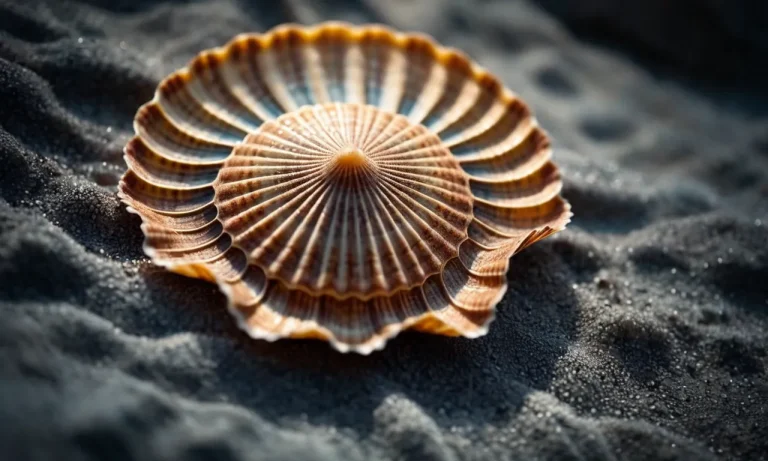Oil has been an integral part of religious and spiritual practices across different faiths and cultures for thousands of years. If you’re looking for a quick answer – oil often represents blessing, consecration, healing, and the presence of God or the divine.
In this comprehensive guide, we will explore the varied spiritual meanings and symbolism behind oil in different religious traditions and spiritual belief systems. We will analyze why oil came to be vested with so much religious and ritualistic significance despite being a seemingly commonplace substance.
Biblical and Christian Significance of Oil
Anointing Oil and Consecration
In the Bible, anointing oil was used to consecrate and set apart priests, kings, and prophets for God’s service. God commanded Moses to make a sacred anointing oil with olive oil, myrrh, cinnamon and other fragrant spices (Exodus 30:22-33).
This oil was very holy and was only to be used for anointing the Tabernacle and consecrating the priests. The priests were anointed to symbolize having the Holy Spirit’s empowering presence for service.
Later in Israel’s history, prophets and kings were also anointed with oil. David and Solomon were anointed as young men to demonstrate their authority and God calling them as leaders (1 Samuel 16:1,13; 1 Kings 1:39).
The Old Testament word “messiah” meaning “anointed one” referred to priests, kings and prophets who were set apart for God. Jesus Christ fulfilled this role as the ultimate Messiah and Anointed One of God (Luke 4:18-19).
Oil as a Symbol of Blessing and Favor
In Scripture, oil often symbolizes blessing, favor and abundance from God. Olive oil was a major Israelite crop and very valuable in ancient times for food, medicinal uses, ceremonial anointing and other purposes. Having plenty of oil was considered a sign of prosperity and God’s favor.
For example, in describing Israel as “a land of olive oil”, God showed it was a blessed place He provided (Deuteronomy 8:7-8).
In a memorable story, the widow woman who helped the prophet Elisha had run out of oil and was facing destitution. Elisha miraculously multiplied her olive oil, which she could then sell to pay off debts and live on the rest (2 Kings 4:1-7). This showed God’s compassion in rescuing her from poverty.
Healing and Medicinal Use of Olive Oil
Olive oil was widely used as a base for balms, salves and ointments for its soothing and healing properties. The Good Samaritan applied oil and wine to the wounds of the injured man to ease his pain and promote healing (Luke 10:34).
James gave instructions that elders should anoint the sick with oil when praying over them (James 5:14). This likely built faith through the physical action and medicinal qualities of the oil.
Research continues to unlock powerful health benefits of high quality olive oil. Studies show that antioxidant and anti-inflammatory compounds in olive oil help fight heart disease, diabetes, cancer, arthritis and aging. No wonder it was associated with blessing and wellness in the Bible!
Oil in Hinduism and Buddhism
Role of Oil in Hindu Rituals and Worship
Oil plays a significant role in many Hindu rituals and worship ceremonies. Hinduism incorporates the symbolic power of natural elements into spiritual practice, and oil is seen as a purifying, nourishing substance.
Most Hindu rituals, known as pujas, involve the ceremonial bathing of idols in oil and other liquids as an act of devotion.
According to Hindu philosophy, oil symbolizes richness, prosperity and the nourishing aspects of divine love. Common vegetable oils like sesame, coconut and ghee (clarified butter) are used to bathe deities before daily temple rituals.
The application and massaging of oil on idols is believed to transfer spiritual benefits.
Some major Hindu festivals also integrate the use of oil. During Diwali, the brightly burning oil lamps symbolize the triumph of light over darkness and awareness over ignorance. People also apply perfumed oils as part of their holiday celebrations to radiate auspiciousness.
In the nine-night Durga Puja festival, oil lamps are lit for the divine Goddess Durga.
Significance of Oil in Buddhism
While not as prominently featured as in Hinduism, oil holds a special meaning in Buddhism. It is often utilized in religious ceremonies, spiritual healing rituals and symbolic offerings.
Oil fuels the lamps found in Buddhist temples and shrines used for prayer, meditation and offerings. These ritual lamps represent the Buddha’s teachings enlightening the surrounding darkness of suffering in human existence.
Some Buddhist temples also feature vast lamp rooms, with hundreds or thousands of flickering flames magnifying this symbolic effect.
In traditional Buddhist communities, medicinal herbal oils play an important role. Spiritual healers apply herbal oils, along with reciting protective chants and special prayers, to rid the body of illnesses believed to be caused by malevolent spirits.
The oil helps permeate the healing power while soothing and calming the body.
Some Buddhist rituals also incorporate scented oils as ceremonial offerings, symbolizing virtue, mental clarity, health and inner peace. These meaningful, fragrant oils can contain ingredients like sandalwood, lotus and jasmine.
Islamic and Sufi Interpretations of Oil
References to Olive Oil in the Quran
Olive oil, sometimes referred to as “liquid gold,” has held deep spiritual meaning in Islamic traditions for centuries. The Quran contains several references to olives and olive oil, including it being one of the foods provided by Allah in the gardens of paradise (23:19).
Olive trees are also praised as a “blessed tree” (24:35).
In Islam, olive oil symbolizes blessing, light, and nourishment. It was valued not just for its practical uses but for its symbolic sacred quality. When Prophet Muhammad arrived in Medina, one of the first tasks he undertook was to encourage date palm and olive cultivation, showing the crop’s spiritual importance.
Symbolic Meaning in Sufism
In Sufism, the mystical branch of Islam, olive oil carries profound symbolic meaning relating to inner enlightenment. The olive tree’s ability to grow in hot, dry climates where few other plants can thrive, while still producing olives and rich, beneficial oil, is seen as representing the human heart’s ability to flourish spiritually in difficult conditions through God’s grace.
The extraction of oil from olives through pressing is interpreted as a metaphor for how spiritual wisdom and blessing flows out from presses and difficulties in life. And the pure oil’s nourishing quality and its use in oil lamps symbolizes the light of spiritual truth enlightening a Sufi’s inner self.
Many Sufi poets and writers used olive oil imagery in their teachings. The 13th century Sufi poet Rumi’s references to olives and olive oil were not just as symbols but also as sacramental substances to ingest to receive spiritual knowledge.
Consuming olive oil was a way to literally absorb enlightenment.
Esoteric and New Age Perspectives
Chakra Healing
In energy healing traditions, essential oils are believed to stimulate the energy centers of the body known as chakras. Specific oils are associated with certain chakras based on their aromatic and energetic properties.
For example, sandalwood and frankincense oils are thought to resonate with the higher crown and third eye chakras, promoting spiritual awareness and connection. Oils like ginger, bergamot, and geranium are believed to stimulate the lower solar plexus and sacral chakras, promoting vitality, power, and creativity.
According to energy healers, when applied to the skin or inhaled, these oils can clear energy blockages in the chakras. This allows life force energy, also called prana or qi, to flow freely through the body’s energy system for better health and wellbeing.
Some practices like aromatherapy massage combine essential oil chakra work with hands-on energy balancing techniques for amplified healing effects.
While effects vary person-to-person, those receiving chakra-based energy treatments often report renewed feelings of relaxation, harmony, and mindfulness. However, more research is still needed to fully understand the mechanisms behind these reported benefits.
Energy Work and Anointing
Beyond chakra healing, essential oils are also used in various energy medicine rituals. Many spiritual traditions practice some form of energy clearing before conducting sacred ceremonies or entering holy spaces.
Methods include diffusing cleansing oils like sage, sweetgrass, or frankincense to energetically “smudge” away negative energy.
The anointing of rituals objects and even people with blessed oil is also common. According to spiritual teacher Emma Loewe (emmaloewe.com), “Anointing oils amplifies their vibrational power to cut through stagnant energy and catalyze healing on deeper levels.”
Often, such rituals use sacred plant oils like spikenard, myrrh, cinnamon, and olive oil. Participants report profound experiences of spiritual activation and renewal.
Conclusion
As we have seen, across various faiths and spiritual traditions ranging from Christianity to Hinduism to esoteric practices, oil holds profound symbolic significance and is used extensively in rituals and ceremonies.
The viscous, flowing quality of oil and its ability to permeate makes it an apt representation of divine blessing, favor, and the transmission of grace and spiritual energies. The use of scented oils in anointing and healing also imbues it with therapeutic connotations.
So while on the surface, oil may seem like just another commonplace physical substance, a deeper analysis reveals the myriad layers of meaning it has been infused with by centuries of diverse spiritual beliefs and practices.






